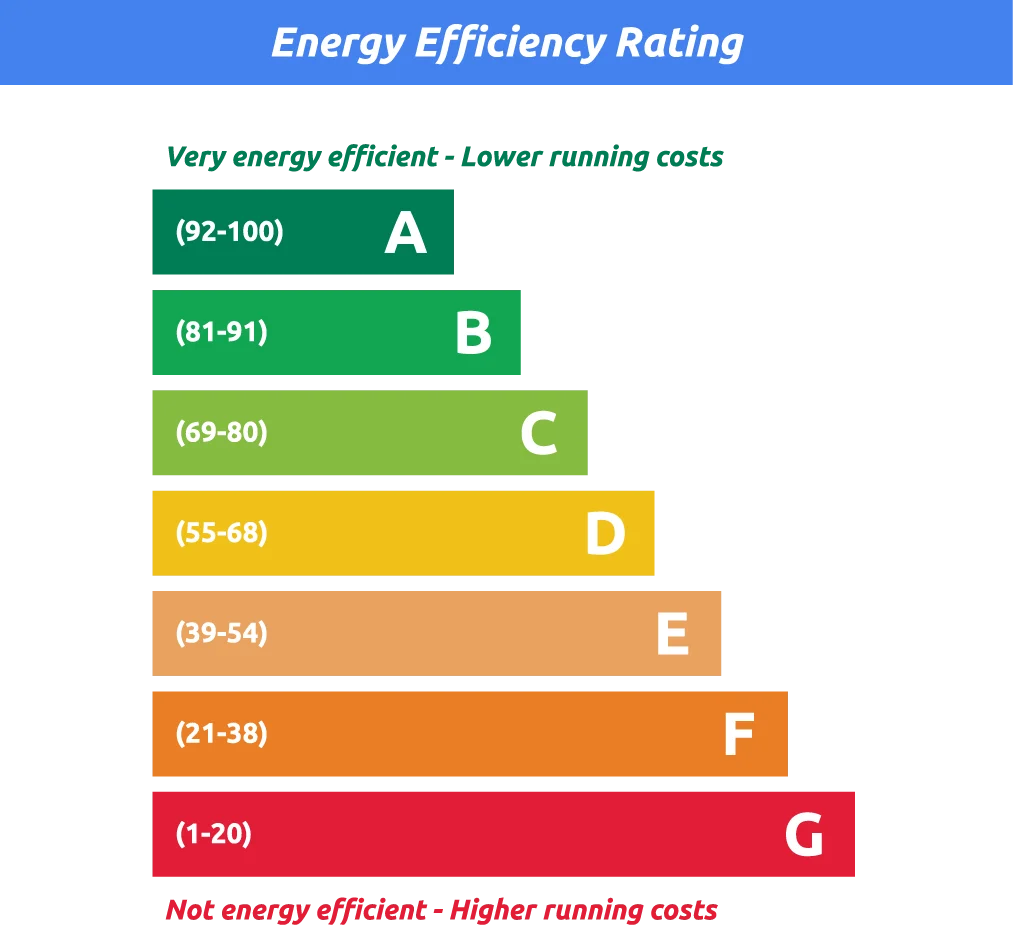Energy Performance Certificate (EPC) for Your Property
Ensure compliance, reduce bills, and enhance your home’s value

What Is an EPC and Why You Need One?
Energy Performance Certificates
An Energy Performance Certificate (EPC) provides a clear snapshot of your property’s energy efficiency, rating it from A (most efficient) to G (least efficient). Beyond fulfilling a legal requirement, an EPC highlights opportunities—such as loft insulation, boiler upgrades, or solar panels—to lower running costs and future-proof your investment against tightening regulations. Whether you’re preparing to sell or rent, having an up-to-date EPC in hand gives buyers and tenants confidence, showcases your home’s green credentials, and can even boost your asking price.
EPC Requirements & Compliance for Landlords
If you’re letting a residential property, you must comply with the Minimum Energy Efficiency Standards (MEES). Since April 2018, all new tenancies require an EPC rating of at least E, and since April 2020 this has applied to existing tenancies too. Falling below this threshold risks fines of up to £5,000 and delays in marketing your property. At Apex Real Estate Slough, we handle the entire process—from arranging a visit by an accredited assessor to delivering your certificate—so you stay compliant and can advertise without delay.
EPC Service Fee: £150 (inc. VAT)
Frequently Asked Questions (EPC)
Everything you need to know about Energy Performance Certificates for your property
What is an EPC?
An Energy Performance Certificate (EPC) is a detailed report that assesses a property’s energy efficiency. It rates your home on a scale from A (most efficient) to G (least efficient) and offers practical recommendations—such as upgrading insulation or installing a more efficient boiler—to help improve your rating and reduce your energy bills.
When is an EPC Required?
An EPC must be in place before you market your property for sale or rent. This legal requirement applies whether you’re selling a home, letting a flat, or advertising any type of residential dwelling. Without a valid EPC, you cannot legally advertise your property.
Why is an EPC Important?
An EPC does more than satisfy a legal obligation. A higher energy-efficiency rating can make your property more attractive to buyers and tenants by showcasing lower running costs and modern upgrades—such as solar panels or new insulation. Improving your EPC rating can also boost your home’s market value and help future-proof your investment against tightening energy regulations.
EPC Requirements for Rental Properties
Landlords must ensure that any residential property they’re letting meets the Minimum Energy Efficiency Standards (MEES). Since April 2018, all new tenancies require an EPC rating of at least E; from April 2020, this standard also applies to existing tenancies. Renting out a property below this threshold is prohibited and could incur fines of up to £5,000.
How Long Does an EPC Last?
An EPC remains valid for ten years from the date of issue. You can use the same certificate for multiple sales or lettings within that period—provided you haven’t carried out major energy-related renovations that would affect its accuracy.
Who Can Carry Out an EPC Assessment?
Only an accredited energy assessor is legally permitted to compile and issue an EPC. At Apex Real Estate, we handle the entire process for you—arranging a qualified assessor, securing your certificate, and ensuring full compliance.
EPC Service Fee: £150 (including VAT)
Need an EPC quickly? Contact our team today and we’ll organise everything for you.